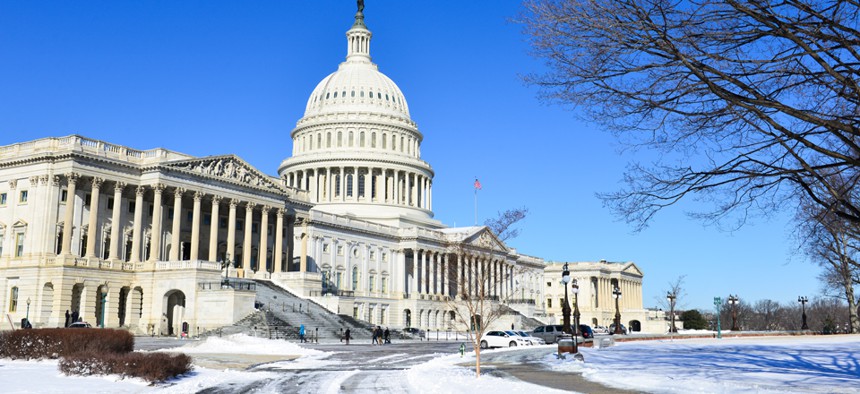
Orhan Cam/Shutterstock.com
House Panel: No Pay Raises for Congress in 2015
Appropriations committee rejects a bid to grant lawmakers a per diem for living expenses.
A House panel on Wednesday approved legislation that would freeze congressional pay for the sixth consecutive year.
The Appropriations Committee on voice vote advanced its fiscal 2015 legislative branch spending bill, which includes a provision preventing lawmakers from receiving a pay increase next year. Rank-and-file lawmakers currently earn $174,000 a year, while those in leadership positions receive a bigger paycheck: the House speaker takes home a $223,500 annual salary, and the majority and minority leaders in both chambers receive $193,400 a year.
Congress allowed federal employees at the end of 2013 to receive a 1 percent pay raise this year, which ended the three-year across-the-board pay freeze for civilian workers that took effect in 2011. Given the institution’s low public approval rating over the last few years, any attempt by lawmakers to raise their own pay likely would create even more backlash against them.
At least one lawmaker, however, believed it was time for a raise. Retiring Rep. Jim Moran, D-Va., who offered an unsuccessful amendment to the spending bill to give members of Congress a per diem for living expenses, said recently that lawmakers do not make enough money.
“I think the American people should know that the members of Congress are underpaid,” Moran told CQ Roll Call in an interview. “I understand that it’s widely felt that they underperform, but the fact is that this is the board of directors for the largest economic entity in the world.”
He added many members “can’t even afford to live in Washington,” and many lawmakers live in “small little apartment units” or in their offices. Moran, who has served in the House for 23 years, has consistently fought for better pay and benefits for federal workers. While the methods for determining the annual pay raises of lawmakers and federal employees vary slightly, the two are tied. Lawmakers’ annual pay adjustments cannot exceed the annual base pay adjustments of General Schedule employees. (Lawmakers do not receive locality pay.)
The $3.3 billion spending bill, which funds House and joint operations with the Senate, is the same amount provided for fiscal 2014 and is $122.5 million below President Obama’s budget request.
The legislation “adheres to the same fiscal goals we have set for each and every program and agency across the federal government -- and that means tightening our belts and making do with what we have,” said Appropriations Chairman Harold Rogers, R-Ky.
(Image via Orhan Cam/Shutterstock.com)







